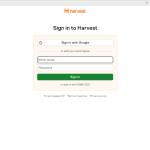
The transition from computer apps to mobile apps was scary. Before 2008, almost every app was developed for personal computers. You had to watch movies, stream music, do your taxes, and read books there. This, however, all changed with the advent of smartphones. The market for mobile apps has been quadrupling every year, and the number of apps on iTunes and the Google Play Store has been steadily increasing. If you want to enter this market, you are most likely feeling overwhelmed and anxious about all the different aspects of strategizing, development, and marketing required to get ahead. This article talks about some of the industry secrets that streamline the process of creating an app and successfully penetrating the market.
Table of Contents
#1 Coding Skill Hardly Matters
We all have an image in our mind (which is probably false anyway) of what an entrepreneur looks like. A young man in his early twenties, hacking away obsessively on his computer, writing incomprehensible code in obscure languages, creating a highly-optimized and bug-free piece of software that takes every user’s breath away. This is a largely false image that couldn’t be further from the truth.
- You don’t need to use any obscure or difficult computer languages to develop your app. There are rare cases where using C++ or C is necessary for an app to run at full speed, especially if it is extremely complex, but in most cases, using the official languages is more than enough.
- You don’t even need to create different programs for each mobile OS. You can use a framework, such as React, that will significantly cut development time. While it is true that some of these frameworks have made programs run slowly before, nowadays, due to technological advances, the performance hit incurred is negligible.
That’s why you shouldn’t let technical skills intimidate you into not starting your own project. If you ever get stuck, you always have the option of outsourcing it to software developers that specialize in the issue you’re stuck with.
#2 The Apps Features are Important – to a Degree
No one can say what an app does isn’t important in its success, but its contribution is highly overestimated on the internet and in the literature. We regularly see very simple apps with rather rudimentary features get a ton of success, and maybe it is time you rethink how you approach designing your apps’ features.

Accessibility
and ease of use come first – it doesn’t matter how many features you can jam
into your app if people aren’t able to intuitively learn to use it. A mobile
app doesn’t need a hundred-page manifesto describing how it works, but rather,
you need to do extensive testing on how understandable and usable each feature
is, and if you see that a feature is too complex, either remove it or start by
making it easier to use before developing more features.
#3 Focus on Marketability From Day 1
The mobile app market is oversaturated, and if you want to increase your chances of success, you must think about marketability from the early stages of development:
Respond to market demands – do polling, ask around, interview potential users. There are a lot of ways to learn the general market sentiment and whether your app will be popular or not. Don’t worry, many apps started out really unpopular and lacked any demand, but through innovation and remarketing, many of them saw great success. This, in essence, is what lean software development is all about. Constantly collecting market data, responding to it, and refining the processes to create something successful. The earlier you start on this process the better your results will be.
Some entrepreneurs have a lot of trouble with this step because they are developers, specialists, and not managers, planners, and marketers, which requires different skill sets and personality characteristics. That’s why you should consider hiring a marketing or SEO firm that specializes in collecting user data and analyzing market trends, so you have a lucid view of where your app needs to go in the future. Whether you choose an SEO company in London or New York, they’ll be able to help.
#4 Ways of Funding Your Project
Due to the potential mobile apps have, there are a lot of ways to fund your project that relieve you from taking on all the financial costs of development and marketing.
- Venture capitalists and angel investors look for interesting and profitable projects to invest in all the time. If you can present your ideas in a persuasive way and make them see the ways, you can make a profit, and you’ll have a strong financial backing to make your project succeed.
- If you have a project that you think a lot of people on the internet might be interested in, then crowdfunding is one way to fund yourself. Be careful, however, as chances of standing out in the sea of other projects are low.
RELATED ARTICLES
Latest Articles
 xxxxxxxxl Size Cxx Clothing: Your Comple…In Fashion
xxxxxxxxl Size Cxx Clothing: Your Comple…In Fashion Environmental and Noise Benefits of Hand…In Tips
Environmental and Noise Benefits of Hand…In Tips Marketing in Motion: How Businesses Use …In Business
Marketing in Motion: How Businesses Use …In Business Emoji Kitchen Google: Create Your Own Cu…In General
Emoji Kitchen Google: Create Your Own Cu…In General Harvest Login Guide: Secure Access for T…In General
Harvest Login Guide: Secure Access for T…In General Best Websites to Sell Books Online for M…In Technology
Best Websites to Sell Books Online for M…In Technology Payment Gateways in Egypt: Unlocking Onl…In Business
Payment Gateways in Egypt: Unlocking Onl…In Business What’s in Fudholyvaz: Ingredients,…In Food
What’s in Fudholyvaz: Ingredients,…In Food
stopie.com is a participant in the Amazon Services LLC Associates Program, an affiliate advertising program designed to provide a means for sites to earn advertising fees by advertising and linking to Amazon.com.
Clicking on an Amazon link from stopie.com does not increase the cost of any item you purchase.
We will only ever link to Amazon products that we think our visitors may be interested in and appreciate learning more about.



